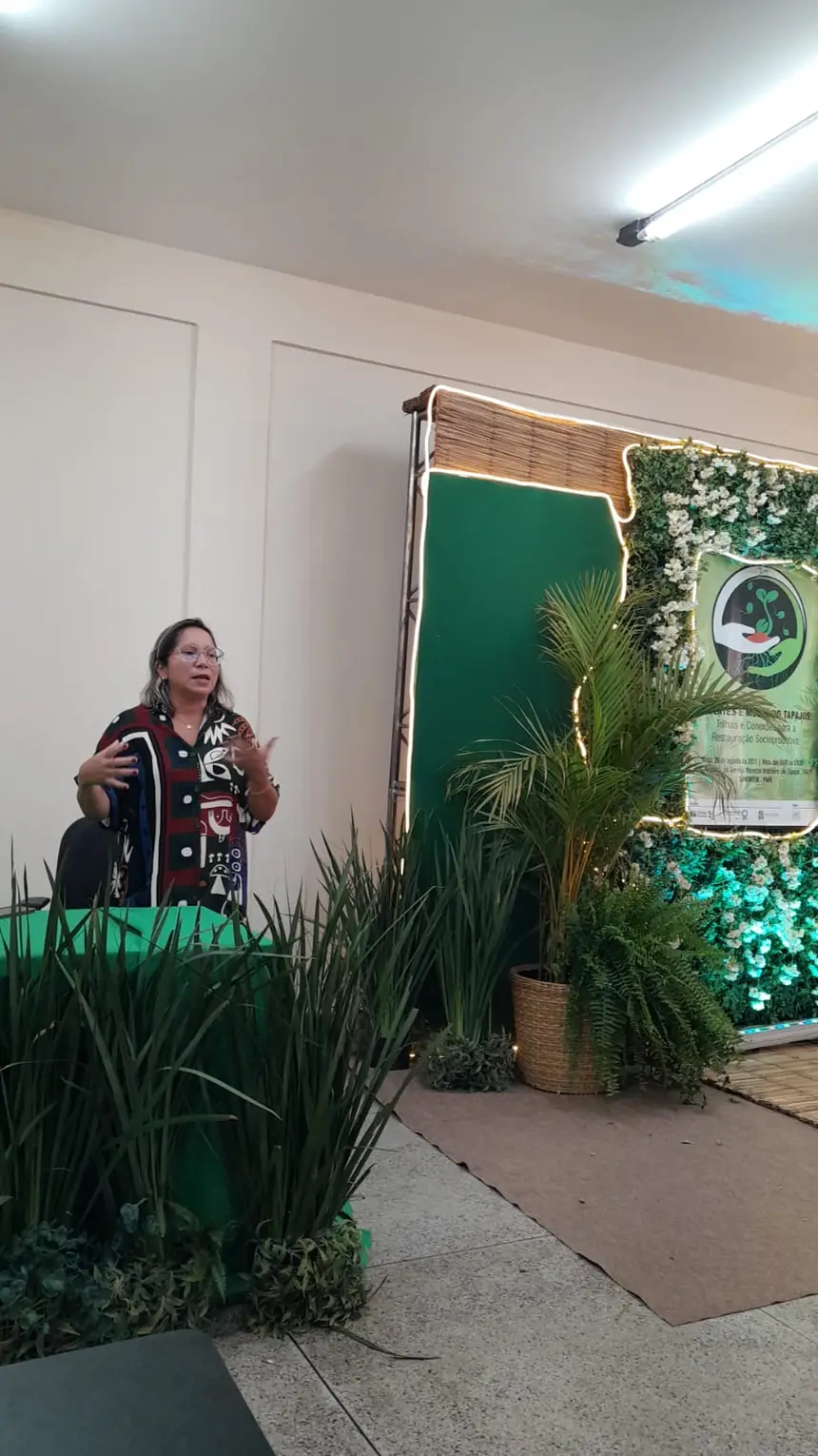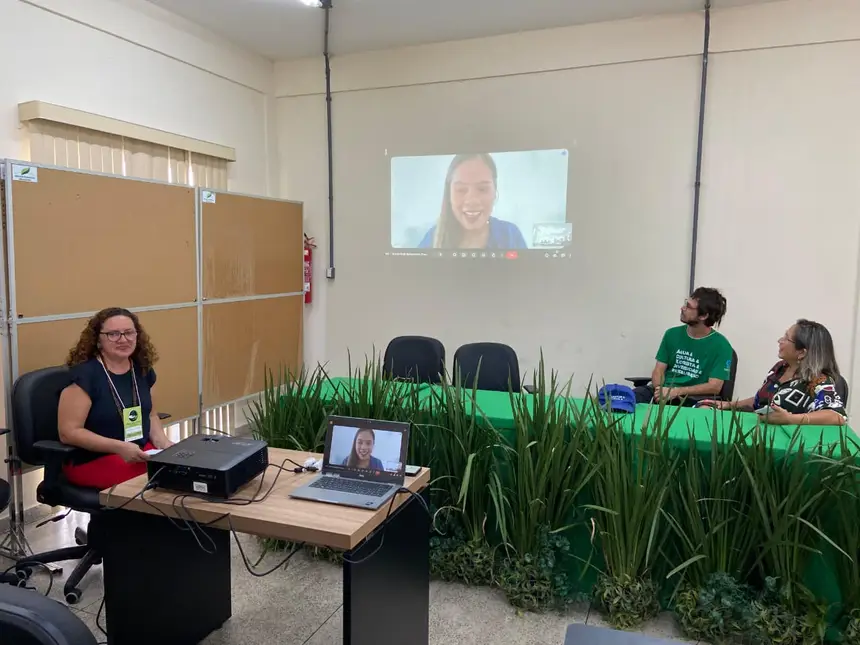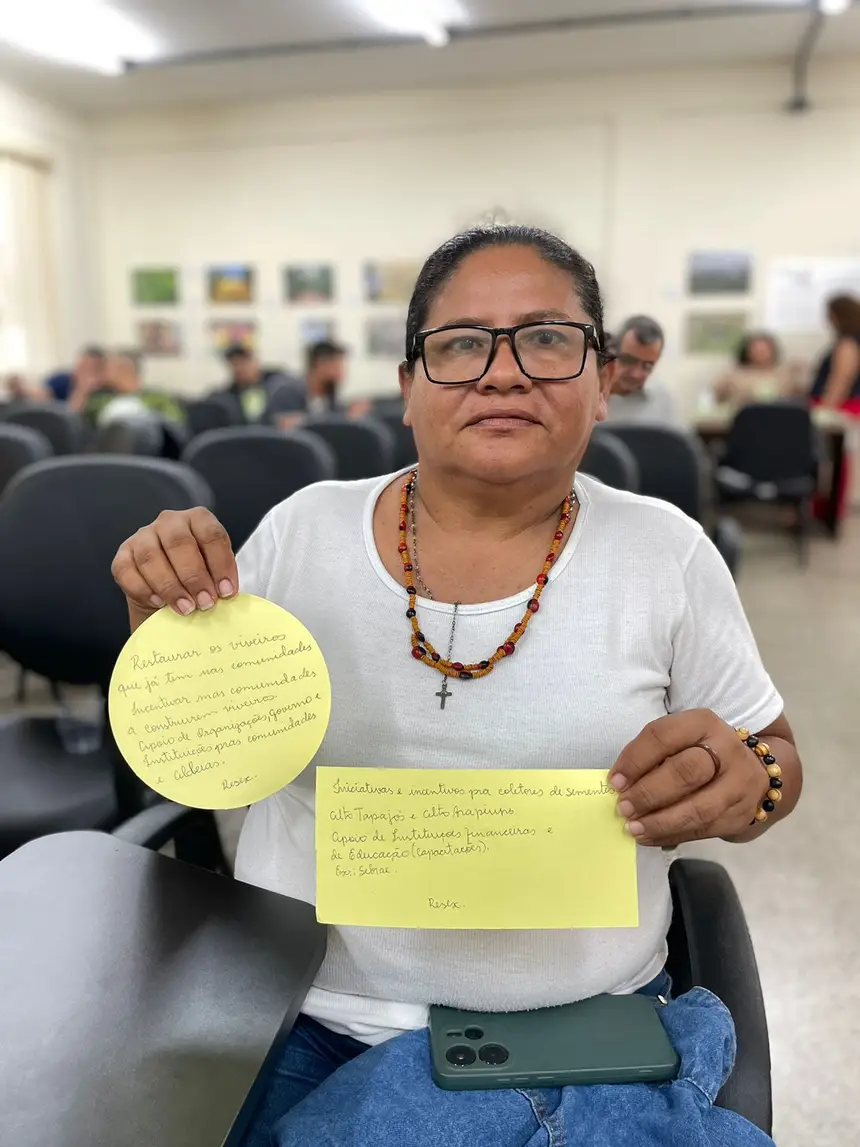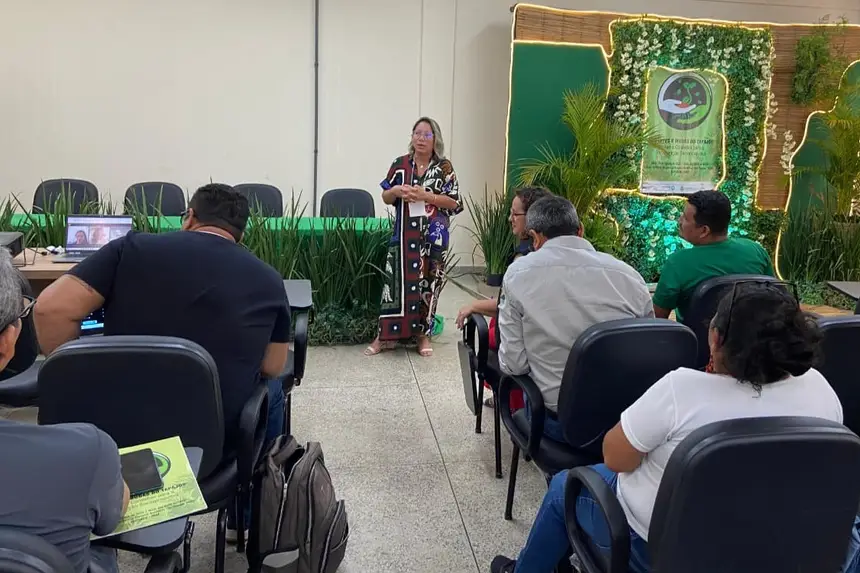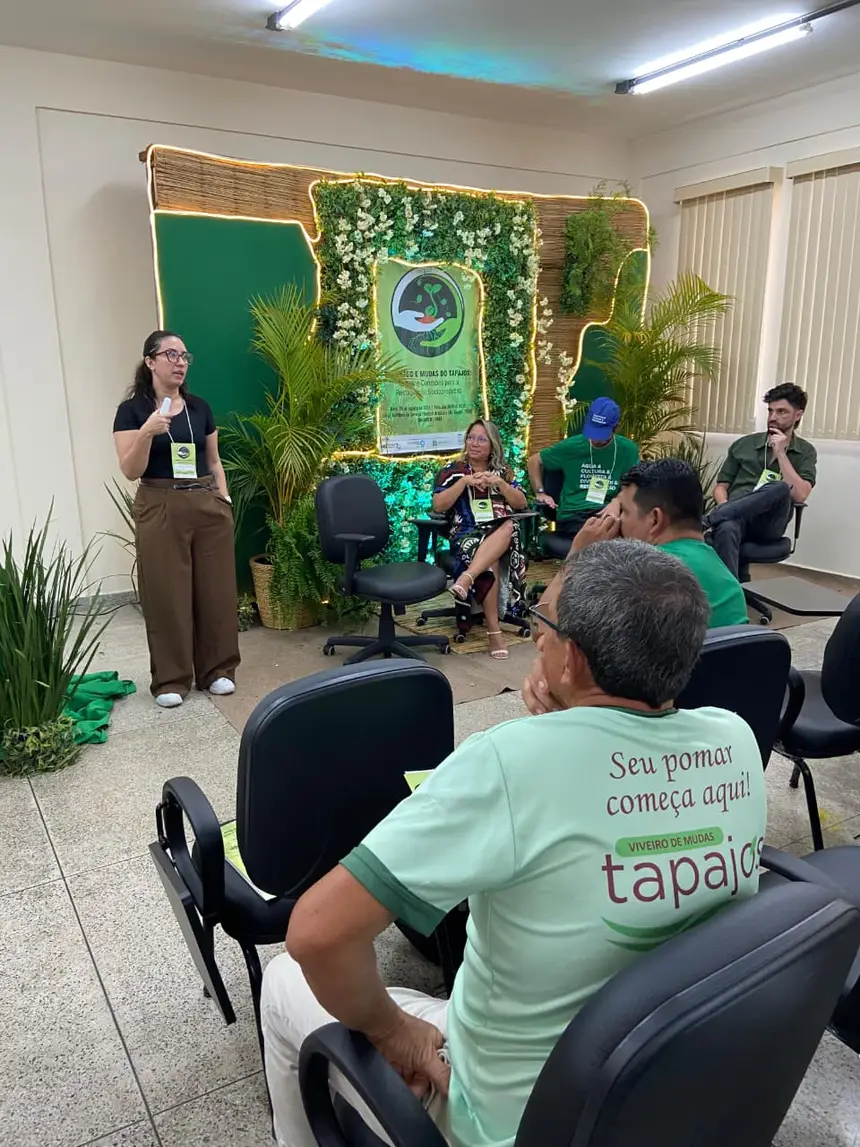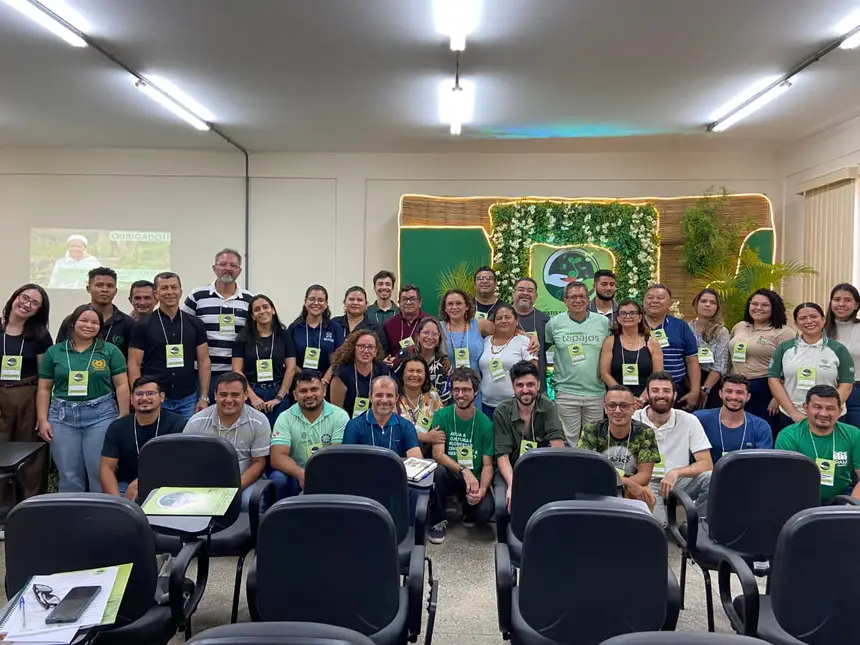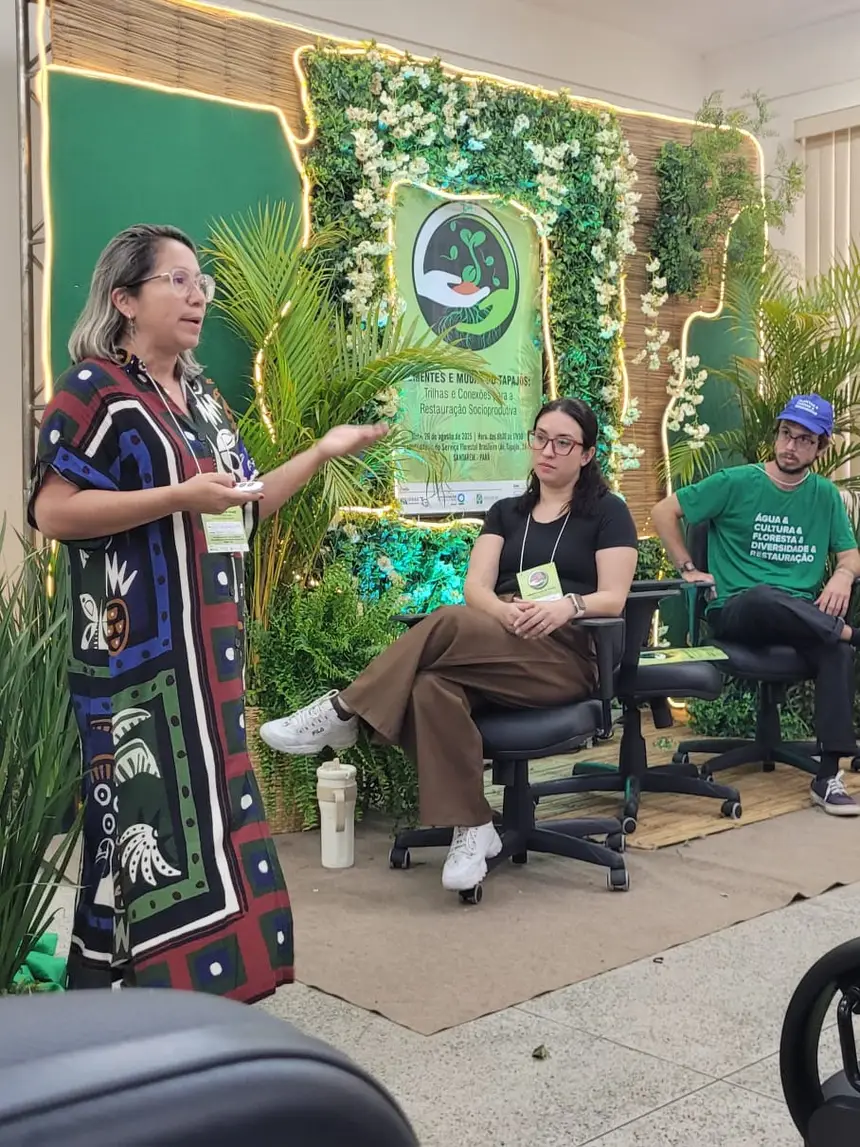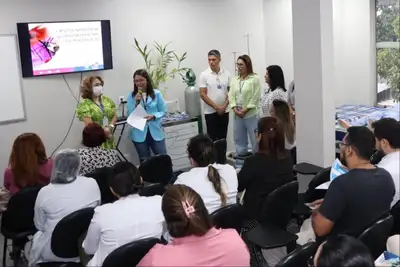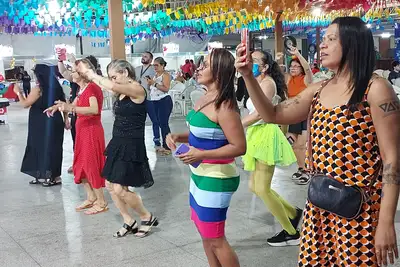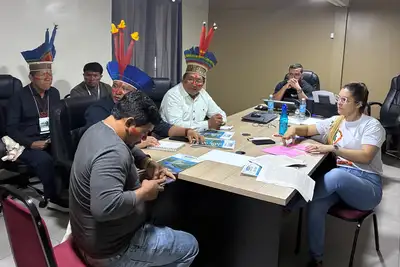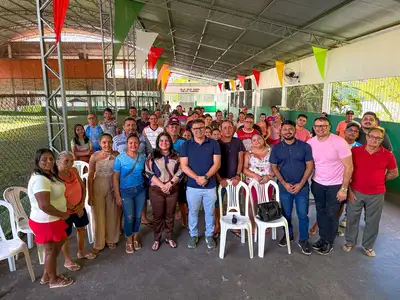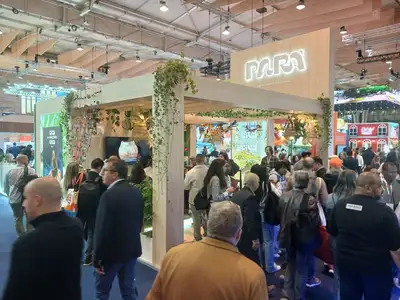'Seed and Seedling Network of Tapajós' advances with support from institutions and traditional communities
Meeting in Santarém brought together partners, organizations, and traditional peoples to structure a sustainable forest restoration chain
The auditorium of the Brazilian Forest Service (SFB) in Santarém hosted the event "Seeds and Seedlings of Tapajós: Trails and Connections for Socioproductive Restoration" last Tuesday (26). The program brought together public managers, institutional partners, and representatives of traditional communities with the aim of strengthening the Seed and Seedling Network of Tapajós, an initiative that seeks to structure a sustainable chain capable of meeting the goals of the National Plan for the Recovery of Native Vegetation (PLANAVEG) and the Environmental Regularization Program of Pará (PRVN).
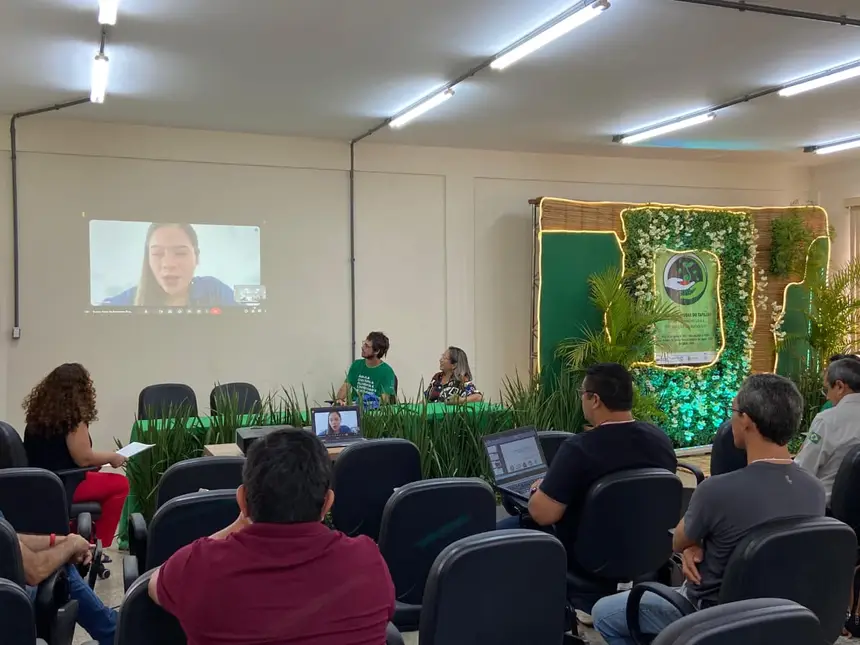
Organized by the Amazon Environmental Research Institute (IPAM) and Conservation International, the meeting highlighted the importance of cooperation between civil society, the productive sector, and public authorities to transform commitments into concrete results for restoration and income generation in the Amazon.
The Institute for Forest Development and Biodiversity of Pará (Ideflor-Bio) participated in two thematic panels. The first, "Seeds of Tapajós: cooperation and socioproductive innovation," discussed how networking can boost the protagonism of communities in the collection and commercialization of seeds. The second, "Seed and Seedling Network of Tapajós: Structuring and Operationalization," addressed the pathways to ensure scale and sustainability for the initiative.
According to Ideflor-Bio's Forest Contracts Manager, Cíntia Soares, the consolidation of the network is strategic. "Strengthening the Seed and Seedling Network of Tapajós is essential for us to transform plans into concrete actions for restoration. This movement integrates those who live and care for the forest with structuring public policies, paving the way for solid, inclusive, and lasting results," she emphasized.
Socioproductive development and inclusion
The discussions emphasized that forest restoration should be understood not only as compliance with environmental goals but also as an opportunity for socioproductive development. The creation of structured chains of seeds and seedlings contributes to income generation, appreciation of traditional knowledge, and strengthening of sustainable practices in the territory.
Local representatives reminded that, with technical assistance, access to markets, and institutional support, it is possible to transform the potential of sociobiodiversity into concrete benefits for communities and families in the region.
At the end of the meeting, the organizers reinforced that the consolidation of the network requires investment, cooperation, and continuity. The expectation is that the experience initiated in Santarém will become a regional reference, ensuring that restoration effectively takes place on the forest floor and leaves a positive legacy for future generations.



